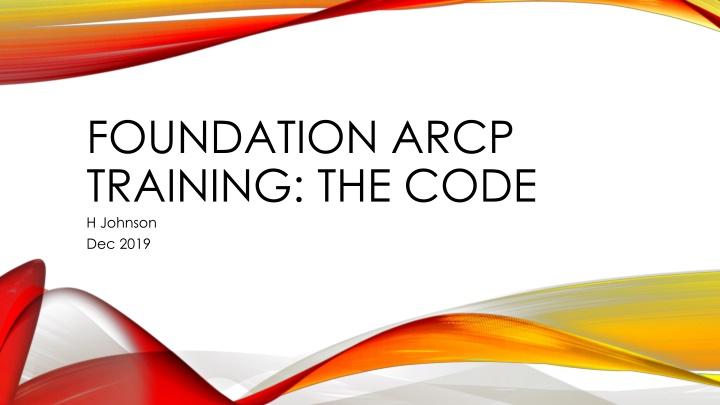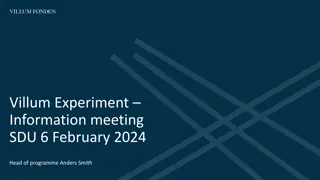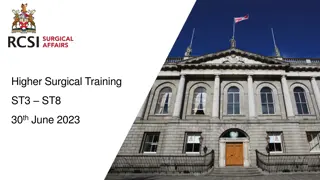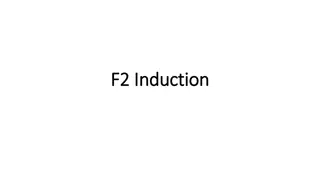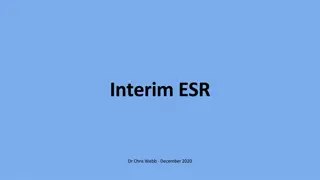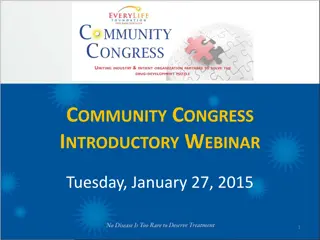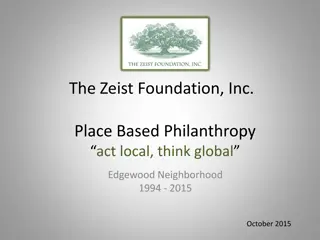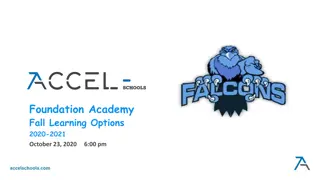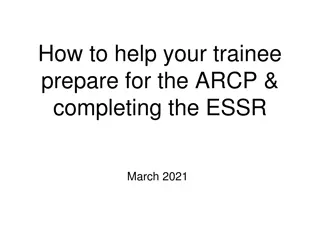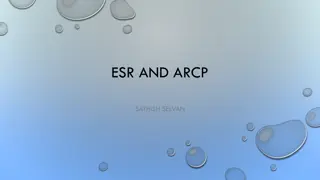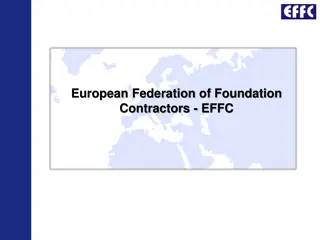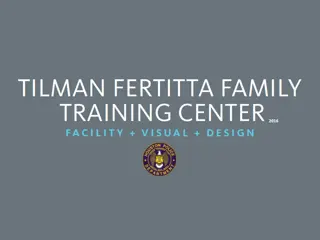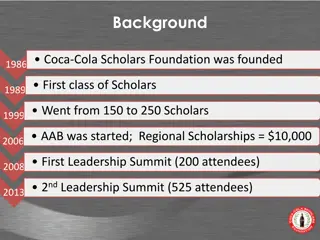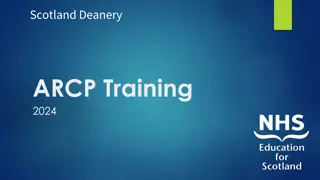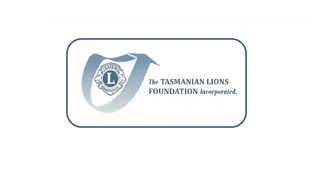ARCP Training and Foundation Guide Overview
Explore important information about ARCP training outcomes, Foundation Guide updates, and local common outcomes related to Foundation Year 1. Understand the requirements for satisfactory progress and potential outcomes for trainees. Learn about Out of Programme experiences and the implications for trainee documentation. Stay informed on recent changes in the foundation programme structure.
Download Presentation

Please find below an Image/Link to download the presentation.
The content on the website is provided AS IS for your information and personal use only. It may not be sold, licensed, or shared on other websites without obtaining consent from the author.If you encounter any issues during the download, it is possible that the publisher has removed the file from their server.
You are allowed to download the files provided on this website for personal or commercial use, subject to the condition that they are used lawfully. All files are the property of their respective owners.
The content on the website is provided AS IS for your information and personal use only. It may not be sold, licensed, or shared on other websites without obtaining consent from the author.
E N D
Presentation Transcript
FOUNDATION ARCP TRAINING: THE CODE H Johnson Dec 2019
FOUNDATION GUIDE 2019 The foundation guide has been rewritten to align with the gold guide https://www.foundationprogramme.nhs.uk/sites/default/files/2019- 10/FoundationGuideTraining_Sept19_Update.pdf Please read it! This is the guidance document for how foundation functions. ARCP section 4 and the appendixes Our local pages for FTPD/foundation educators https://heeoe.hee.nhs.uk/foundation/schools-trusts-and-practices
LOCAL COMMON OUTCOMES OF ARCP Outcome 5 Incomplete evidence presented Additional training time may be required Outcome 6 Outcome 1 Satisfactory progress at end of Foundation Year 1 (F1CC) Achieving progress and the development of capabilities at the expected rate Satisfactory progress is defined as achieving the Foundation Professional Capabilities for FY1 as described in the Foundation Programme curriculum approved by the GMC. Recommendation for completion of Foundation Programme training: Gained all required Foundation Professional Capabilities Will be recommended as having completed the Foundation programme will be recommended for award of FPCC The panel can make no statement about progress or otherwise since the trainee has supplied either no information or incomplete information to the panel. agree what outstanding evidence is required from the trainee and the timescale If the panel considers that an Outcome 1 or 6 is likely on the basis of the evidence available and satisfactory outstanding evidence is received, Chair to issue an Outcome 1/6. However, if the Chair does not receive the agreed evidence or if the panel considers that an Outcome 3 or 4 is likely on the basis of the evidence refer central ARCP
LESS COMMON LOCAL OUTCOMES OF ARCP OUTCOME 8 Out of programme for clinical experience, research or a career break (OOPR/OOPC/OOPT) The panel should receive documentation from the trainee on the required form (Appendix 4) indicating what they are doing during their OOP time, if the OOP is not recognised for training. Liaise with your FSD and programmes! OOPR If the purpose of the OOP is research, the trainee must produce a research supervisor s report together with the annual OOP report form indicating that appropriate progress in research is being made, along with achievement of the relevant degree (if appropriate). OOPC If a doctor is undertaking a career break, a yearly OOPC request should be sent to the panel, indicating that the trainee is still on a career break and including an indicative intended date of return. [OOPT If the trainee is out of programme on a training placement or OOPR that has been prospectively approved by the GMC and that will contribute to the capabilities of the trainee s programme, then an Outcome 8 should not be used. Instead, a routine assessment of progression should be made and an Outcome 1, 3, 4 or 5 should be awarded.] STILL SHOULD HAVE FORM R
REWIND! OOPR? Previously, trainees could only take time out in the foundation programme using the Time out of Foundation Training. Now Foundation has aligned somewhat with the Gold Guide. There are a number of circumstances when a trainee may seek to spend some time out of the training programme. All such requests need to be agreed by the Postgraduate Dean/Deputy in advance [by mid January] so trainees are advised to discuss their proposals as early as possible. [VIA THE FSD!] Occasions where OOP is granted to foundation trainees are likely to be exceptional given the length and the nature of their training. The duration of time out of the foundation programme will usually be 12 months to avoid foundation doctors becoming out of phase with the foundation programme. Foundation schools will typically only approve OOP at the end of F1 so that the time out is taken between the end of F1 and the beginning of F2. Time out during F1 or F2 placements will only be considered in exceptional circumstances.
OOP NEEDS CENTRAL/DEAN APPROVAL The purpose of taking time out of a foundation training programme is to support the trainee in: i. undertaking clinical training that is not a part of the trainee s training programme (OOPT) (e.g. some Foundation Schools allow F2 abroad WE DONT) ii. undertaking a period of research leading to an MD, PhD or MSc (OOPR) iii. taking a planned career break (OOPC) Trainees must maintain their licence to practise while on OOP should check what effect this time away will have on their salary, sickness and maternity entitlements The Postgraduate Dean/Deputy cannot guarantee the date or the location of the trainee s return placement If a trainee, having indicated that they are returning to the training programme, subsequently declines the place offered, then there is no guarantee that another place can be identified although every effort will be made to do so. If the foundation doctor does not contact the FSD as agreed (3.31ii), the foundation school is no longer required to hold a F2 programme
TIME OUT OF PROGRAMME FOR A CAREER BREAK (OOPC) Planned OOPC will permit a trainee to step out of the training programme for a designated and agreed period of time to pursue other interests (e.g. domestic responsibilities, work in industry, developing talents in other areas and entrepreneurship). Periods of ill health should in the first instance be managed under the guidance of the employer s occupational health services, as for other staff. OOPC is an inappropriate way of managing health issues OOPC is not an acceptable reason for deferring the start of a programme. In such cases, the trainee should defer making an application until ready to begin training The duration of OOPC will normally be a period of up to one year. trainee will be accommodated in the next available suitable vacancy, there is no guarantee of return date and it may take time for a suitable vacancy to arise.
OK, SO OUTCOME 8 Trainees who wish to undertake full-time research out of programme must have their research programme agreed with their named academic supervisor. This should form part of the documentation sent to the Postgraduate Dean/Deputy when requesting OOPR. Should have an academic report indicate whether appropriate progress in the research has taken place during the previous year and also whether the planned date of completion of the research has changed. Any request for a potential extension to the OOPR will need to be considered separately by the Postgraduate Dean/Deputy via FSD Discussion point: do we want this to be with the local FTPD or part of central ARCP pool?
WHAT DO WE DO FOR LTFTT? N14/N15 As for all trainees, LTFT trainees will need to meet the requirements for progression in training as set out by GMC approved curriculum for training and they will be assessed in accordance with the ARCP process set out in paragraphs 4.15-4.60. For clarity, key points with regard to progression in training for LTFT trainees have been set out below. LTFT trainees should have an ARCP at points where decisions relating to progression in training are required in addition should be assessed not less than annually. Practically, they will have an ARCP with everyone else. If this isn t a progression time they will receive an N code. Less than full time (LTFT) no concern Achieving progress and the development of outcomes at the expected rate. N14 Less than full time (LTFT) some concern May not be achieving progress or development of outcomes at the expected rate. N15 They will then have an ARCP roughly midway through their final F1 and F2 rotation, where they will receive a standard outcome.
GIVING NO OUTCOME AT ARCP N1/N2 There are circumstances when the ARCP panel would not issue an outcome, such as when the trainee is absent due to statutory leave (e.g. maternity/paternity/adoption or sick leave) or where training has been paused. In these cases, the panel will record the reasons for this Most common: Trainee Sick Leave Trainee on long term sickness or other health issues have impacted on ability to complete the year of training being reviewed. N1 Trainee Maternity/ Paternity Leave Trainee cannot be reviewed whilst on maternity leave N2 We can use N1 for trainees who are on sick leave during the ARCP panel timings. They will need an ARCP on their return to work Trainees who were allowed a pause for ill health can be given an N1
PAUSING AND N1 Pausing Training for Reasons Other Than Statutory Leave 4.78 The ARCP panel will also need to consider any period when the training time has been paused. This may mean that a shorter period of time than expected has been available in which to make progress and the panel decision should take this factor into consideration. The ARCP panel may need to issue an N code for the period being assessed due to a training pause. Pausing training is a decision that should normally be taken outside of the ARCP process. It is a neutral action that should be agreed with the trainee, as early as reasonably practical, and then approved by the Postgraduate Dean/Deputy and documented. Pausing training should not be assumed and needs to be supported with suitable evidence of need. HEE, NES, the HEIW and NIMDTA should ensure that they have a process for obtaining suitable evidence around such circumstances (e.g. occupational health advice) and for deciding on whether to temporarily pause training. Such pausing of training time will also require an adjustment to the expected FPCC end date / CoE date via GMC Connect (paragraph 4.56).
Trainee on suspension for Gross Misconduct Trainee currently suspended from training either as a result of GMC Suspension or local Trust or other local disciplinary proceedings due to gross misconduct. N10 Trainee on suspension - other reason Trainee currently suspended for reasons other than gross misconduct. N11 Trainee Resignation The trainee has left the training programme prior to its completion. Please specify if: no remedial training prior to resignation received remedial training prior to resignation The trainee was dismissed prior to programme completion. Please specify if Dismissed: no remedial training undertaken Dismissed following remedial training Dismissed: no GMC referral Dismissed following GMC referral N12 N21 N22 N16 Trainee dismissed N17 N18 N19 N20
THE END! Discussion of trainees both of our cases and any you wish to discuss around the codes that you may want to apply can be now , or part of our practical workshop. When in doubt, discuss early with any of the FSD team. Remember the foundation guide! https://www.foundationprogramme.nhs.uk/sites/default/files/2019- 10/FoundationGuideTraining_Sept19_Update.pdf
